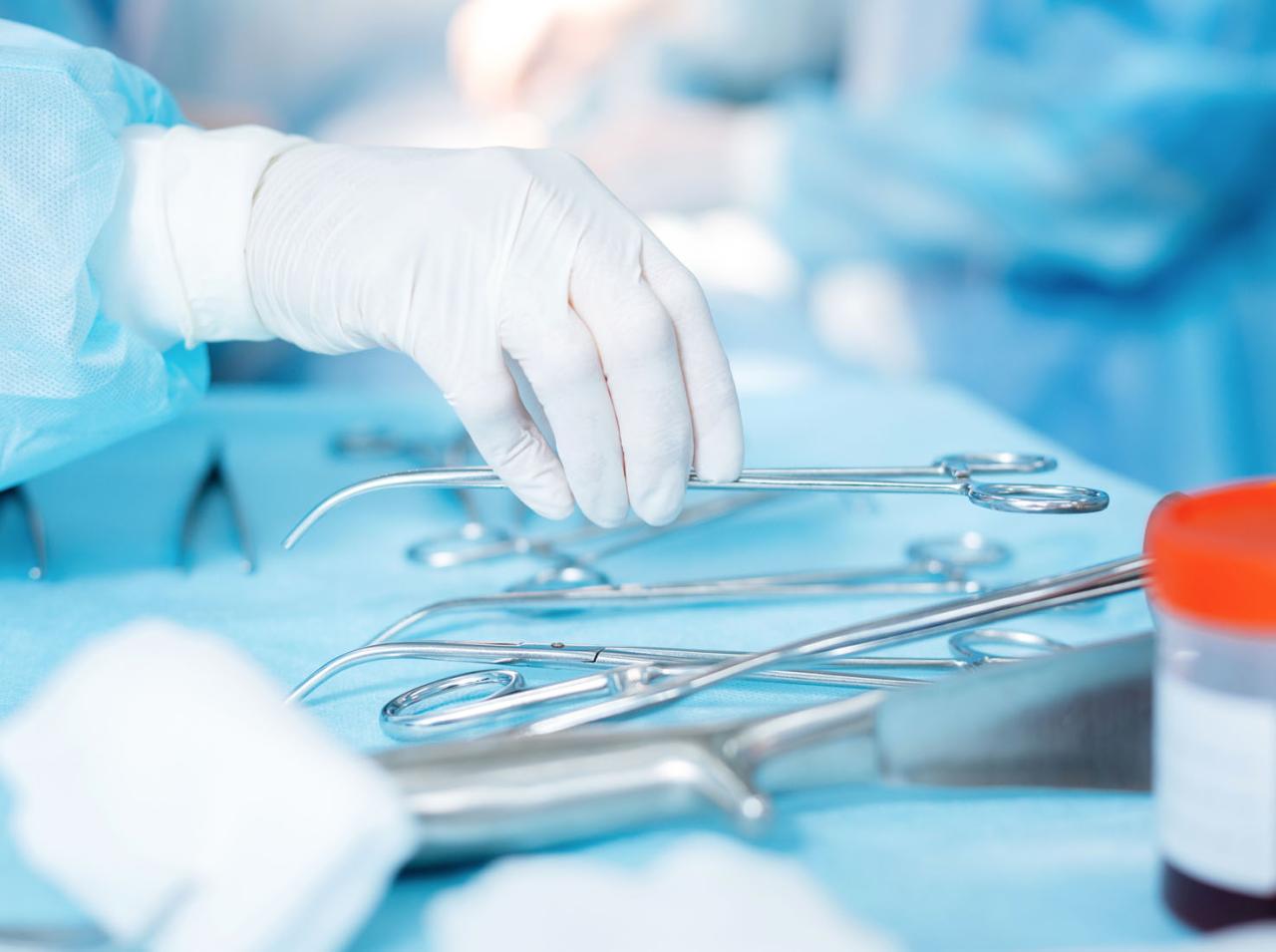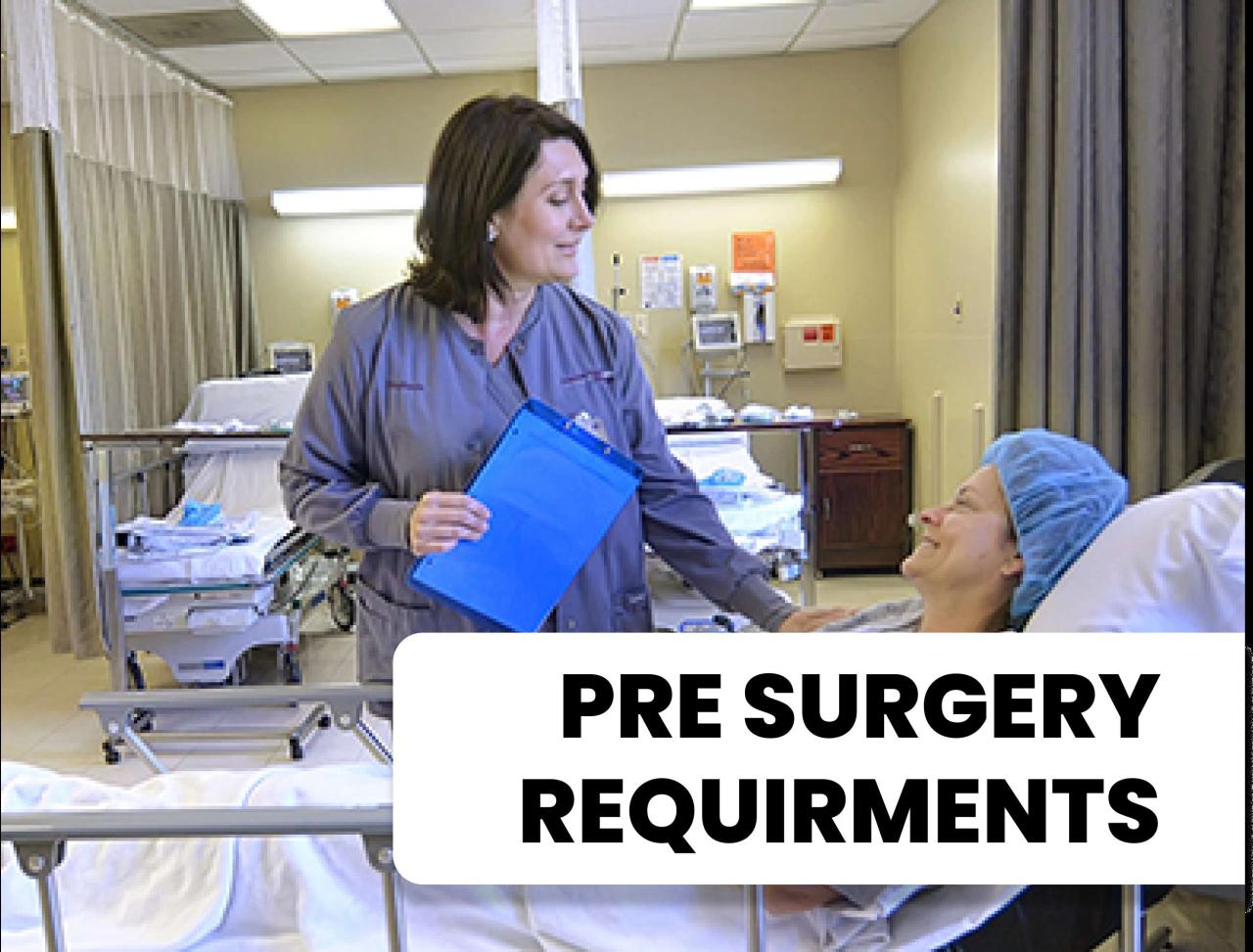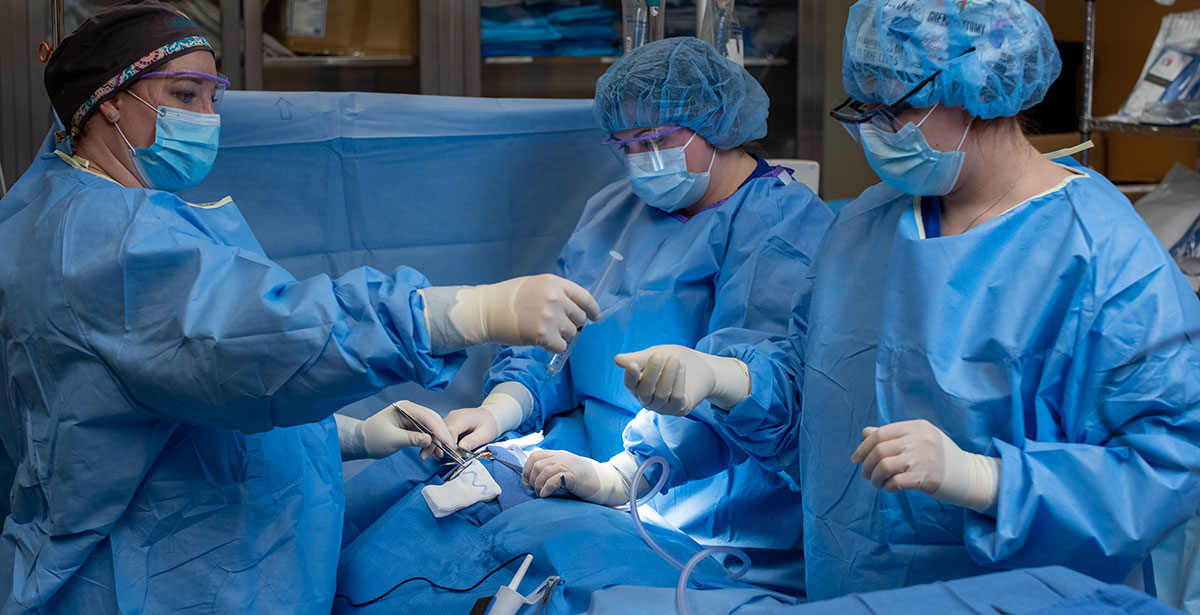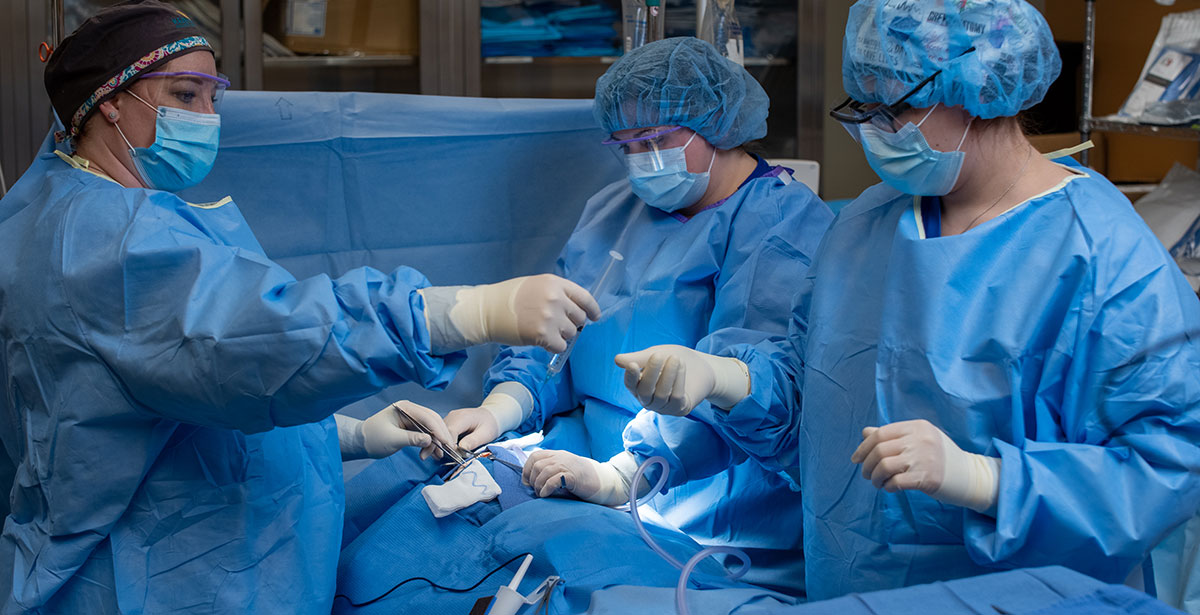Surgical tech program admission requirements and prerequisites can seem daunting, but understanding them is key to a successful application. This guide breaks down the process step-by-step, covering everything from educational background and entrance exams to clinical experience and background checks. We’ll explore the specifics, offer helpful tips, and answer common questions to help you navigate this exciting path.
Becoming a surgical technologist requires more than just a passion for healthcare; it demands a specific set of qualifications. This involves meeting educational standards, demonstrating aptitude through exams, gaining relevant experience, and clearing background checks. Let’s delve into each crucial aspect, empowering you to prepare a strong application.
Educational Requirements for Surgical Technology Programs
Gaining admission to a surgical technology program hinges significantly on your educational background. Meeting the minimum requirements is crucial for even being considered. This section details the typical educational prerequisites.
High School GPA and Coursework
Most surgical technology programs require a minimum high school GPA, often ranging from 2.5 to 3.0 on a 4.0 scale. However, a higher GPA significantly improves your chances of acceptance, as it demonstrates academic aptitude and commitment. Beyond GPA, specific high school coursework plays a vital role. Strong foundations in science (biology, chemistry) and mathematics are essential, as these subjects form the bedrock of understanding surgical procedures and medical technology.
A robust science background demonstrates your ability to grasp complex concepts and handle the demanding curriculum of a surgical technology program.
High School Diploma Equivalents
While a high school diploma is generally required, many programs accept equivalent credentials. The General Educational Development (GED) certificate is a common alternative, provided you meet the specific requirements of the program and the issuing state. Other acceptable equivalents might include homeschooling diplomas, provided they meet established accreditation standards. It’s essential to verify the specific acceptance policies of each program you are applying to.
Comparison of Educational Prerequisites Across Institutions

The following table compares the educational prerequisites of several hypothetical surgical technology programs. Note that these are examples, and actual requirements may vary significantly between institutions.
| Program Name | High School Diploma Requirement | Minimum GPA | Required Courses |
|---|---|---|---|
| University A Surgical Tech Program | High School Diploma or GED | 2.75 | Biology, Chemistry, Algebra |
| Community College B Surgical Tech Program | High School Diploma or GED | 2.5 | Biology, Algebra I |
| Hospital C Surgical Tech Program | High School Diploma | 3.0 | Biology, Chemistry, Algebra II |
| Private Institute D Surgical Tech Program | High School Diploma or GED | 2.0 | Biology |
Entrance Exams and Tests
Many surgical technology programs require applicants to take standardized entrance exams to assess their academic preparedness. These exams often evaluate critical thinking, reading comprehension, and mathematical skills.
Commonly Required Entrance Exams
The Test of Essential Academic Skills (TEAS) is a frequently used entrance exam for surgical technology programs. Other exams, such as the Accuplacer or the SAT/ACT, may also be accepted, depending on the specific program’s requirements. These exams gauge your readiness for the rigorous demands of the program. A strong performance on these exams significantly enhances your application.
So, you’re looking at surgical tech program admission requirements and prerequisites? It’s a competitive field, and you’ll need a solid foundation in science. Many of the instruments used, by the way, are manufactured overseas—check out this interesting article on manufacturing, China is the manufacturing superpower | Hacker News , to get a better idea of the global supply chain.
Back to those admission requirements, though – make sure you meet all the prerequisites before applying!
Scoring Requirements and Impact on Admission

Each program sets its own minimum score requirements for entrance exams. Meeting or exceeding these minimums is essential for consideration. Higher scores demonstrate stronger academic abilities and increase your competitiveness among other applicants. Some programs may weigh the entrance exam score heavily in the overall admission decision.
Tips for Preparing for Entrance Exams, Surgical tech program admission requirements and prerequisites
Thorough preparation is key to success on these exams. Utilize official study guides, practice tests, and online resources. Create a realistic study schedule and stick to it. Focus on areas where you need improvement, and seek help from tutors or study groups if necessary. Consistent effort and strategic study habits significantly boost your chances of achieving a high score.
Example Study Plan for the TEAS Exam
A sample study plan for the TEAS exam might involve dedicating several weeks to review key subjects. This could include daily practice with math problems, reviewing science concepts, and working on reading comprehension exercises. Using official TEAS practice tests is crucial to familiarize yourself with the exam format and timing. Consistent, focused study is essential.
So you’re looking at surgical tech program admission requirements and prerequisites? It can be a bit of a process, needing things like a high school diploma and maybe some prerequisite science courses. Take a quick break though – check out this exciting game recap: Lakers 119-102 Hawks (Jan 3, 2025) Game Recap – ESPN. Then, get back to researching those admission requirements; remember, clinical experience is often a big plus!
Clinical Experience and Prerequisites: Surgical Tech Program Admission Requirements And Prerequisites
Prior healthcare experience is highly valued by many surgical technology programs. This demonstrates your commitment to the field and provides valuable hands-on insight into the healthcare environment.
Types of Acceptable Clinical Experience
Various types of clinical experience can strengthen your application. Volunteering in a hospital setting, shadowing a surgical technologist, or working as a Certified Nursing Assistant (CNA) all provide valuable exposure and relevant skills. The level and type of experience needed will vary depending on the specific program’s requirements.
Examples of Relevant Volunteer Opportunities
Here are a few examples of volunteer opportunities that can benefit your application:
- Hospital Volunteer: Assisting patients, running errands, and providing general support. Skills gained: Teamwork, communication, patient interaction.
- Surgical Department Volunteer: Observing surgical procedures, assisting with preparation, and learning about sterile techniques. Skills gained: Sterile field techniques, surgical terminology, observation skills.
- Medical Office Volunteer: Assisting with administrative tasks, patient check-in, and general office support. Skills gained: Medical terminology, organizational skills, patient interaction.
Application Process and Materials
The application process typically involves several key components, all of which are essential for a strong application.
Typical Application Components
A typical application package includes a completed application form, official high school or college transcripts, letters of recommendation, and a personal statement or essay. Each element contributes to the admissions committee’s assessment of your suitability for the program.
Importance of a Well-Written Personal Statement
Your personal statement provides an opportunity to showcase your personality, motivations, and aspirations. It allows you to explain why you are interested in surgical technology and how your experiences have prepared you for the program. A compelling personal statement can significantly impact the admission decision.
Obtaining Strong Letters of Recommendation
Seek recommendations from individuals who can speak to your character, work ethic, and academic abilities. These could be teachers, counselors, supervisors, or healthcare professionals who have worked with you. Provide them with ample time and information to write a strong and detailed letter of recommendation.
Application Checklist
A comprehensive checklist ensures you don’t miss any crucial steps:
- Complete the application form
- Request official transcripts
- Obtain letters of recommendation
- Write and edit your personal statement
- Submit all materials by the deadline
Background Checks and Health Requirements
Surgical technology programs often require background checks and health screenings to ensure the safety and well-being of patients and the healthcare environment.
Background Check Requirements
Most programs conduct background checks to verify your criminal history. This process typically involves fingerprinting and a review of criminal records. A clean background check is usually a prerequisite for admission.
Meeting Health Requirements

Meeting specific health requirements, such as providing proof of immunizations (e.g., MMR, Hep B, Tdap) and undergoing a physical examination, is essential. These requirements ensure you meet the health standards necessary to work in a healthcare setting.
Obtaining Immunizations and Health Clearances
You’ll need to obtain necessary immunizations from your physician or a local health clinic. A physical examination will assess your overall health and fitness for the program’s demands. This process typically involves scheduling appointments and providing documentation to the program.
Completing a Background Check Application
The background check process usually involves completing an application form, providing personal information, undergoing fingerprinting, and paying any associated fees. The program will provide specific instructions on how to complete the background check.
Program-Specific Requirements

It’s crucial to understand that admission requirements can vary considerably between institutions. Each program may have its own unique prerequisites or admission criteria.
So you’re thinking about applying to a surgical tech program? Admission requirements usually include a high school diploma or equivalent, and sometimes specific science prerequisites. Take a quick break from studying though – check out this amazing celestial event: Venus Moon duo and Quadrantids meteors stun stargazers ! Then, get back to researching those program requirements – good luck!
Examples of Unique Prerequisites
Some programs may require specific certifications (e.g., BLS, ACLS), prior experience in a particular healthcare setting, or participation in an interview. Others may have higher GPA requirements or stricter entrance exam score thresholds.
Comparison of Admission Requirements
The table below compares hypothetical admission requirements of two different surgical technology programs:
| Program Name | Unique Requirement 1 | Unique Requirement 2 | Unique Requirement 3 |
|---|---|---|---|
| Program X | BLS Certification | Interview Required | Minimum 3.2 GPA |
| Program Y | One year of healthcare experience | TEAS Score of 70% | Two letters of recommendation from healthcare professionals |
Closing Summary
Landing your spot in a surgical technology program involves careful planning and preparation. By understanding the admission requirements and prerequisites—from academic qualifications and entrance exams to clinical experience and background checks—you can confidently build a compelling application. Remember, thorough preparation significantly increases your chances of acceptance. Good luck!
FAQ Section
What if I don’t have a perfect GPA?
Many programs consider your overall application, including experience and entrance exam scores, not just GPA. A strong application can compensate for a slightly lower GPA.
Can I substitute volunteer experience for paid clinical experience?
Yes, many programs accept relevant volunteer experience as part of the clinical requirement. Focus on experiences showcasing skills like assisting patients or working in a healthcare setting.
How long does the background check process usually take?
Background check processing times vary, but it’s best to start early to avoid delays. Allow several weeks for completion.
What if I fail the entrance exam? Can I retake it?
Most programs allow retakes of entrance exams. Check the specific program’s policy for details on retake eligibility and timing.
